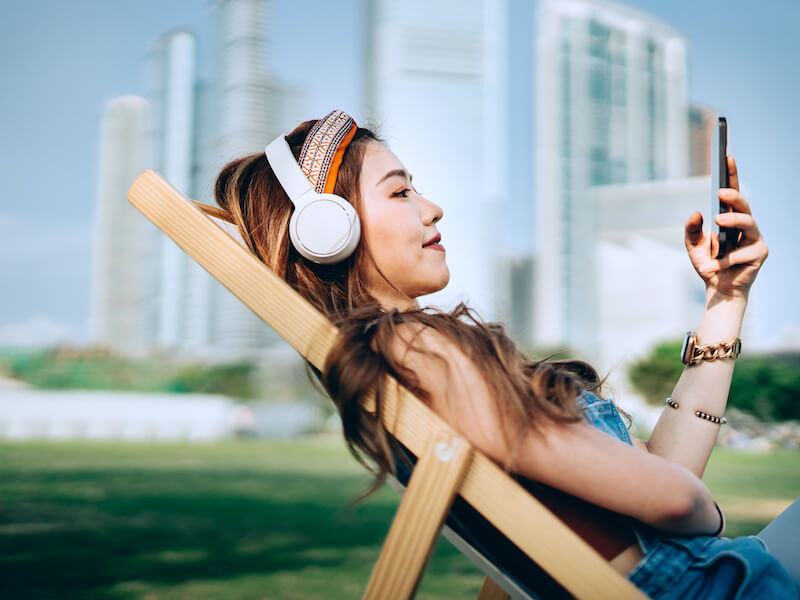
Music is an important part of Aiden’s life. He listens to Spotify while at work, switches to Pandora while jogging, and he has a playlist for everything: gaming, gym time, cooking, and everything else. His headphones are pretty much always on, his life a totally soundtracked affair. But the exact thing that Aiden enjoys, the loud, immersive music, might be causing lasting harm to his hearing.
For your ears, there are safe ways to listen to music and hazardous ways to listen to music. But the more dangerous listening choice is often the one most of us choose.
How can listening to music result in hearing loss?
Your ability to hear can be damaged over time by exposure to loud noise. Normally, we think of aging as the main cause of hearing loss, but more and more research reveals that it’s actually the accumulation of noise-induced damage that is the issue here and not anything inherent in the process of aging.
It also turns out that younger ears are particularly susceptible to noise-related damage (they’re still growing, after all). And yet, the long-term harm from high volume is more likely to be dismissed by young adults. So because of extensive high volume headphone use, there has become an epidemic of hearing loss in young people.
Is there a safe way to listen to music?
It’s obviously hazardous to enjoy music on max volume. But merely turning the volume down is a less dangerous way to listen. Here are a couple of general recommendations:
- For adults: No more than 40 hours of weekly listening on a device and keep the volume below 80dB.
- For teens and young children: You can still listen for 40 hours, but the volume should still be below 75dB.
About five hours and forty minutes a day will be about forty hours a week. Though that may seem like a while, it can feel like it passes rather quickly. But we’re trained to monitor time our whole lives so the majority of us are pretty good at it.
Monitoring volume is a little less user-friendly. On most smart devices, computers, and televisions, volume is not measured in decibels. It’s measured on some arbitrary scale. It may be 1-100. But maybe it’s 1-16. You may not have any idea how close to max volume you are or even what max volume on your device is.
How can you listen to tunes while monitoring your volume?
It’s not really easy to tell how loud 80 decibels is, but thankfully there are a few non-intrusive ways to know how loud the volume is. It’s even more difficult to understand the difference between 80 and 75dB.
That’s why it’s highly recommended you use one of many free noise monitoring apps. These apps, generally available for both iPhone and Android devices, will provide you with8 real-time readouts on the noises around you. That way you can track the dB level of your music in real-time and make adjustments. Your smartphone will, with the correct settings, inform you when the volume goes too high.
The volume of a garbage disposal
Your garbage disposal or dishwasher is usually about 80 decibels. So, it’s loud, but it’s not too loud. Your ears will start to take damage at volumes above this threshold so it’s an important observation.
So pay close attention and try to stay clear of noise above this volume. If you happen to listen to some music beyond 80dB, don’t forget to minimize your exposure. Maybe limit loud listening to a song instead of an album.
Listening to music at a higher volume can and will cause you to have hearing issues over the long run. You can develop tinnitus and hearing loss. The more you can be conscious of when your ears are going into the danger zone, the more informed your decision-making can be. And safer listening will hopefully be part of those decisions.
Give us a call if you still have questions about keeping your ears safe.
